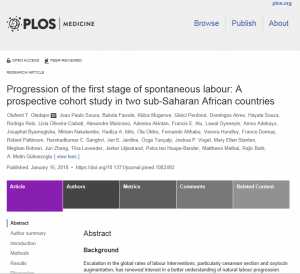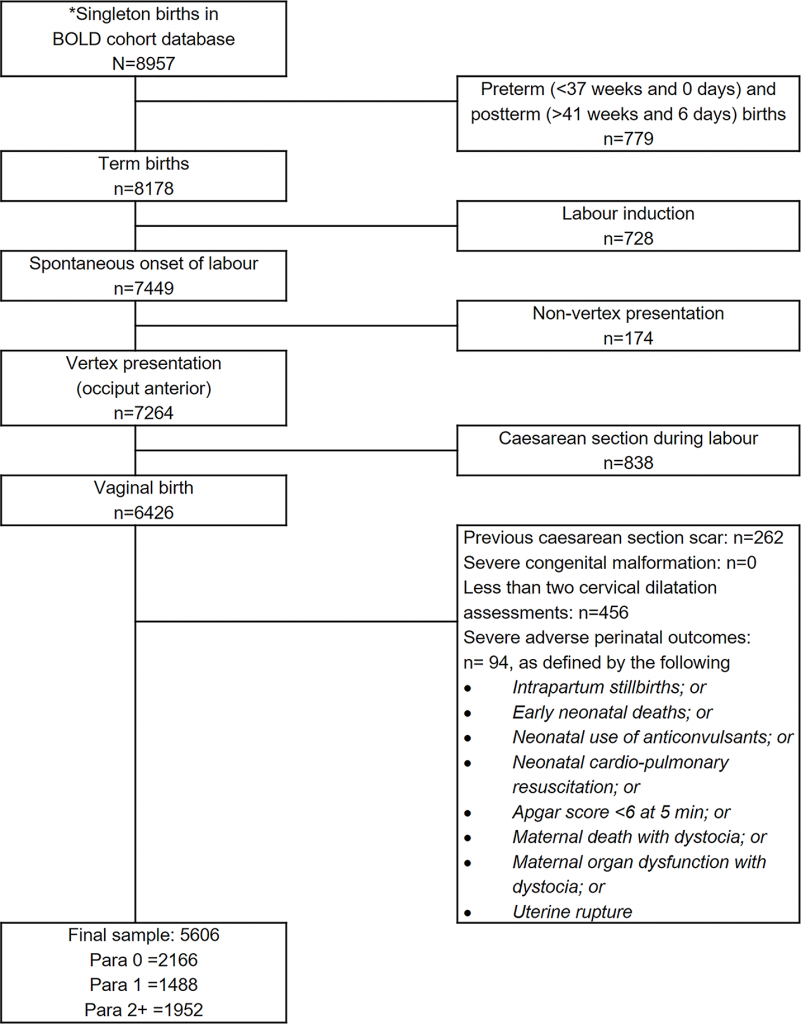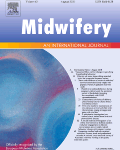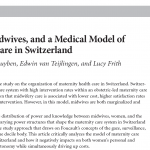 Congratulations to FHSS Prof. Vanora Hundley and her co-authors from across the globe who published ‘Progression of the first stage of spontaneous labour: A prospective cohort study in two sub-Saharan African countries’ in the journal PLOS Medicine [1].
Congratulations to FHSS Prof. Vanora Hundley and her co-authors from across the globe who published ‘Progression of the first stage of spontaneous labour: A prospective cohort study in two sub-Saharan African countries’ in the journal PLOS Medicine [1].
 The authors highlight that since the early 2000s researchers using new statistical methods to have informed changes in recommended labour practices in some settings, they have also generated a lot of controversy. As a result of persistent questions as to whether racial characteristics influence labour progression patterns, recent studies have been conducted among different populations, but not yet in any African population. The authors conclude that
The authors highlight that since the early 2000s researchers using new statistical methods to have informed changes in recommended labour practices in some settings, they have also generated a lot of controversy. As a result of persistent questions as to whether racial characteristics influence labour progression patterns, recent studies have been conducted among different populations, but not yet in any African population. The authors conclude that
- As labour may not naturally accelerate in some women until a cervical dilatation of 5 cm is reached, labour practices to address perceived slow labour progression should not be routinely applied by clinicians until this threshold is achieved, provided the vital signs and other observations of the mother and baby are normal.
- In the absence of any problems other than a slower than expected cervical dilatation rate (i.e., 1 cm/hour) during labour, it is in the interest of the woman that expectant, supportive, and woman-centred labour care is continued.
Congratulations to all authors!
Prof. Edwin van Teijlingen
CMMPH
Reference:
Oladapo OT, Souza JP, Fawole B, Mugerwa K, Perdoná G, Alves D, Souza, H, Reis, R, Oliveira-Ciabati, L., Maiorano, A, Akintan, Alu, F.E, Oyeneyin, L, Adebayo, A, Byamugisha, J, Nakalembe, M, Idris, H.A, Okike, O, Althabe, F., Hundley, V, Donnay, F. et al. (2018) PLoS Med 15(1): e1002492. https://doi.org/10.1371/journal.pmed.1002492
 Congratulations to Prof. Hundley on her latest systematic review paper
Congratulations to Prof. Hundley on her latest systematic review paper Midwifery education article by Prof. Hundley
Midwifery education article by Prof. Hundley New CMMPH paper by PhD student Sheetal Sharma
New CMMPH paper by PhD student Sheetal Sharma New paper international midwifery
New paper international midwifery










 Final Bournemouth University publication of 2025
Final Bournemouth University publication of 2025 On Christmas Day in the Morning…
On Christmas Day in the Morning… New Nepal scoping review on maternal & neonatal health
New Nepal scoping review on maternal & neonatal health Fourth INRC Symposium: From Clinical Applications to Neuro-Inspired Computation
Fourth INRC Symposium: From Clinical Applications to Neuro-Inspired Computation ECR Funding Open Call: Research Culture & Community Grant – Application Deadline Friday 12 December
ECR Funding Open Call: Research Culture & Community Grant – Application Deadline Friday 12 December MSCA Postdoctoral Fellowships 2025 Call
MSCA Postdoctoral Fellowships 2025 Call ERC Advanced Grant 2025 Webinar
ERC Advanced Grant 2025 Webinar Horizon Europe Work Programme 2025 Published
Horizon Europe Work Programme 2025 Published Horizon Europe 2025 Work Programme pre-Published
Horizon Europe 2025 Work Programme pre-Published Update on UKRO services
Update on UKRO services European research project exploring use of ‘virtual twins’ to better manage metabolic associated fatty liver disease
European research project exploring use of ‘virtual twins’ to better manage metabolic associated fatty liver disease